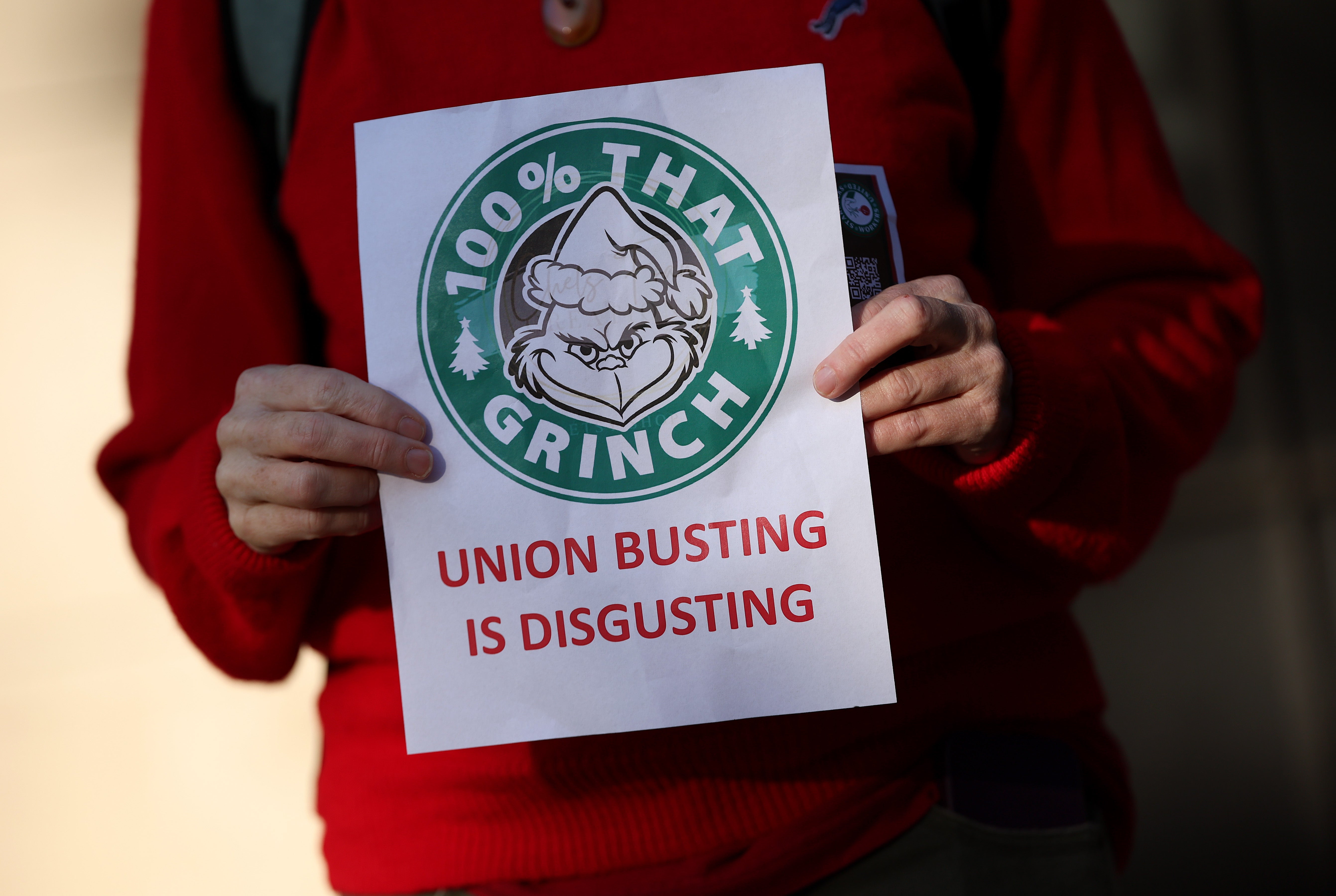Supreme Court’s anti-union Starbucks ruling lands a blow to workers rights
Ruling scales back the power of a labor board to protect pro-union workers
The Supreme Court ruled in favor of Starbucks in a union dispute on Thursday, significantly scaling back the National Labor Relations Board’s power to step in and protect workers from companies under fire for alleged union busting.
In a unanimous ruling, justices said the NLRB should have to satisfy a stricter, four-part test when asking a court to intervene on behalf of workers who allege they have been retaliated against for unionization efforts.

The case was based on a dispute between Starbucks employees in Memphis and the coffeehouse giant. A group of employees attempted to unionize and faced retaliation after Starbucks claimed they broke company policy by reopening their store after closing time and inviting non-employees inside.
The termination of the seven workers had a somewhat chilling effect on employees who felt nervous about attempting to unionize at other locations.
Eventually, the union filed a lawsuit against Starbucks alleging unfair labor practices. The NLRB intervened, securing a preliminary injunction to reinstate the terminated employees as the legal case worked its way through the courts, after satisfying an initial test to show “reasonable cause” that employers engaged in unfair practices.
Seeking preliminary injunctions is a powerful tool used to stop employers from suppressing union activity. The one disputed in the Memphis 7 incident was the 12th the NLRB has sought against Starbucks in the last two years alone.
Starbucks disputed the intervention, claiming the NLRB should have used a four-part test that requires proof of “irreparable harm” and “likelihood of winning” to secure the preliminary injunction.
Previously, the NLRB used a two-part test to secure injunctions to stop employers from engaging in potentially harmful behavior while legal proceedings unfold. After Thursday’s ruling, the board must adhere to the stricter test.
“A preliminary injunction is an ‘extraordinary’ equitable remedy that is ‘never awarded as of right,’” Justice Clarence Thomas wrote in the majority opinion. He said that the four-part test, otherwise known as the Winter test, was “relevant” and had “equitable principles.”
Justice Ketanji Brown Jackson filed an opinion concurring in part but rejected part of the court’s decision, saying she “Cannot join the majority in ignoring the choices Congress has made in the NLRA about how courts should exercise their discretion in light of the National Labor Relations Board’s authority over labor disputes. Because the majority chooses the simplicity of unfettered judicial discretion over the nuances of Congress’s direction, I respectfully dissent in part.”
The opinion is unsurprising, during oral arguments in April, it seemed certain the court would side with Starbucks.
Thursday’s decision aligns with a larger legal movement aimed at shifting power away from federal agencies.
Starbucks Corp v McKinney was a labor law administrative case that had implications for unionization protections.
Join our commenting forum
Join thought-provoking conversations, follow other Independent readers and see their replies
Comments
Bookmark popover
Removed from bookmarks